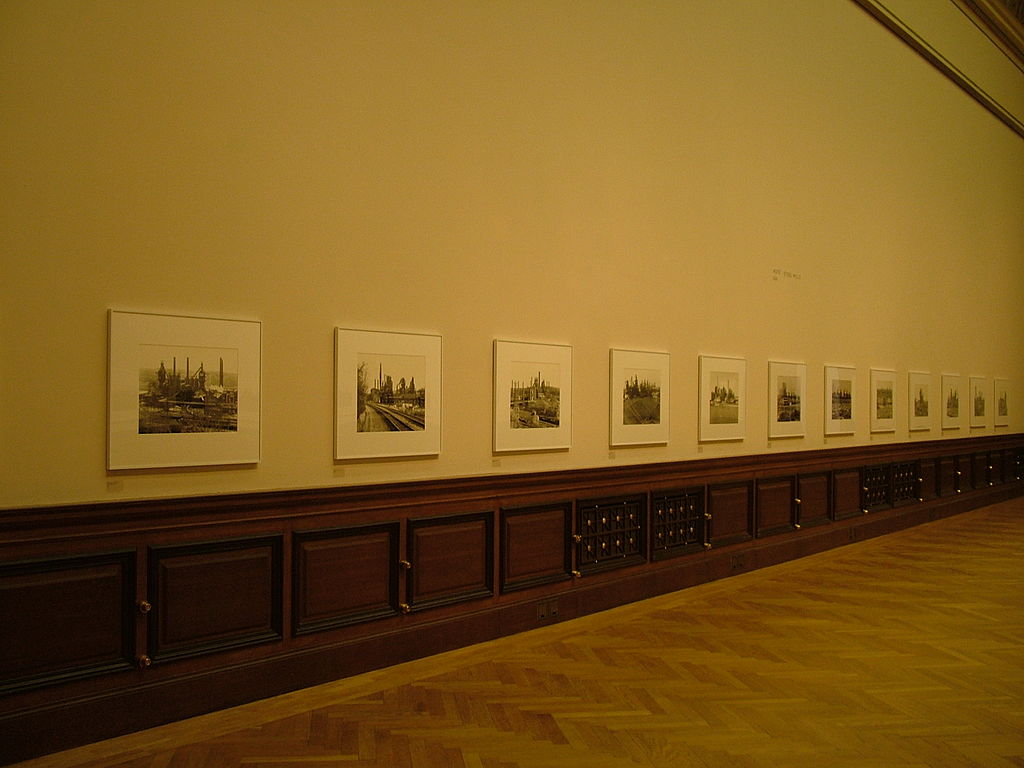
Bernd and Hilla Becher photographs at Galerie Rudolfinum Praha. Licensed under CC BY-SA 3.0.
In August, I become regretful about everything that I haven’t squeezed into my summer and probably won’t. Here is an incomplete list of books I have started and not finished: First Love by Gwendoline Riley, At Freddie’s by Penelope Fitzgerald, The Palace Papers by Tina Brown, Sex in the Archives by Barry Reay, and—many times—Swann’s Way (the first few pages). I abandoned all these books at different points and for the usual reasons; I was busy, bored, or left my copy at the beach. It seems like they are no longer going to be my summer reading—maybe in September.
—Sophie Haigney, web editor
This week, I returned to one of my favorite explorations of the strange geometries of syntax: “Way down the deserted street, I thought I saw a bus which, with luck, might get me out of this sentence which might go on forever, knotting phrase onto phrase with fire hydrants and parking meters, and still not take me to my language waiting, surely, around some corner.” In Curves to the Apple, Rosmarie Waldrop’s sentences accelerate and swerve, reconfiguring the modern discourse on embodiment and subjectivity; there’s a spectacular volta lying in wait in each of these prose poems. “I learned about communication by twisting my legs around yours,” she writes, “as, in spinning a thought, we twist fiber on fiber.”
—Oriana Ullman, assistant editor
The Bernd and Hilla Becher photographs currently on view at the Met amazed me. They feature austere, serial portraits of industrial sites in Europe and America—lime kilns, cooling stations, gravel plants—which were already falling into abandonment in the last century. The photographers, who were a married team, called their practice “anonymous sculpture,” and the result is a surprising blend of conceptual and haunted that rigorously documents the past and transforms it into something almost tender: a monument of labor lost.
—David Wallace, advisory editor
from The Paris Review https://ift.tt/fqaHxK5
Comments
Post a Comment